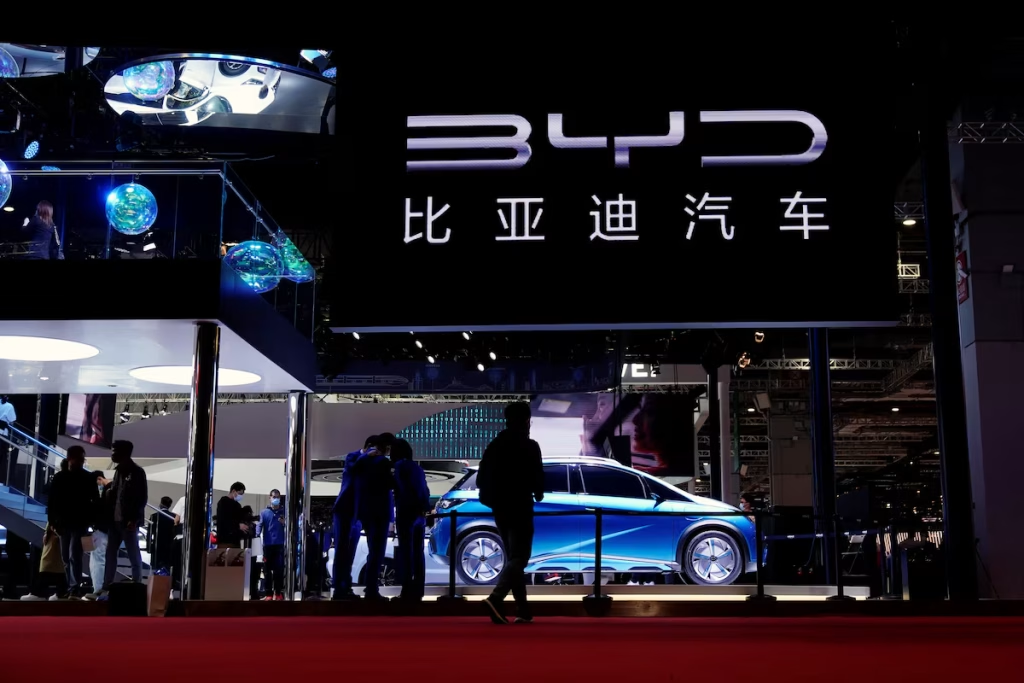In a major move, Chinese automaker BYD has announced its largest-ever vehicle recall, covering more than 115,000 cars, citing both design defects and battery-installation risks.
The decision reflects mounting scrutiny over quality and safety in the electric vehicle (EV) sector, especially as automakers scale production rapidly.
What’s Being Recalled?
The recall affects two key product lines:
- Tang series — 44,535 vehicles produced between March 2015 and July 2017 are being recalled due to component design defects that could lead to “abnormal function.”
- Yuan Pro EVs — 71,248 units manufactured between February 2021 and August 2022 face issues tied to battery installation/manufacturing defects that may undermine safety.
BYD submitted the recall plan to China’s State Administration for Market Regulation (SAMR).
Roots of the Problems
- Design defect (Tang): The Tang recall is linked to flaws in certain components whose improper design could impair some vehicle functions or reliability. Although exact technical details remain limited, regulators flagged “abnormal function” as the key risk.
- Battery installation (Yuan Pro): The Yuan Pro issue is more serious in terms of safety perception, since it involves how the battery pack is installed or secured. Manufacturing or assembly lapses may lead to loose connections, improper sealing, or vulnerability under stress, raising the potential for malfunctions or hazards.
Battery-related issues are particularly sensitive in the EV domain, given possible thermal instability, short circuits, or fire risk if cell connections are compromised.
A Broader Pattern of Recalls
This is not the first time BYD has had to recall large numbers of vehicles:
- In January 2025, BYD recalled 6,843 Fangchengbao (Bao 5) plug-in hybrid SUVs due to fire risk concerns.
- In September 2024, nearly 97,000 Dolphin and Yuan Plus EVs were recalled due to a faulty steering control unit that posed a fire risk.
These recurring recalls highlight ongoing challenges for BYD in quality control, especially as it expands volume and complexity across platforms.
Financial and Market Repercussions
News of the latest recall sent BYD’s stock sliding. In Hong Kong trading, shares dropped about 2.5 % on the day the recall was announced. The recall raises investor concerns over reputational damage, increased costs of remediation, warranty claims, and regulatory scrutiny.
Moreover, BYD’s ambitious overseas expansion plans may encounter headwinds. The company aims to boost exports to constitute 20 % of total sales in 2025 and double its European showroom footprint by 2026. A major recall domestically could erode confidence among international customers and regulators.
Risks & Challenges for BYD
- Cost burden and operations
Remediating over 115,000 vehicles is a massive logistical effort. Costs cover inspection, parts replacement, labor, customer outreach, and potential compensation. - Brand reputation
In a fiercely competitive EV landscape, safety recalls damage consumer trust. For BYD — once lauded for its battery technology and innovation — repeated recalls may offset its brand premium. - Regulatory scrutiny
China’s regulators, as well as overseas authorities, may impose stricter oversight or penalties if BYD fails to enforce stronger quality systems. - Technology & execution gaps
The recall underscores fault lines in BYD’s manufacturing and design processes — particularly in battery integration and component engineering — points of vulnerability as EV complexity increases.
Outlook
BYD is under pressure to respond decisively. Key steps likely include:
- Rapid diagnosis and fix deployment across affected vehicles.
- Enhanced quality assurance protocols, particularly for high-risk subsystems like battery packs and electrical control units.
- Transparent communications to customers and regulators to restore confidence.
- Possibly, redesign efforts for future models to avoid recurrence.
Given the scale of the recall and its overlap with strategic growth plans, BYD’s handling of this crisis will be a litmus test for its long-term credibility in the global EV market.

